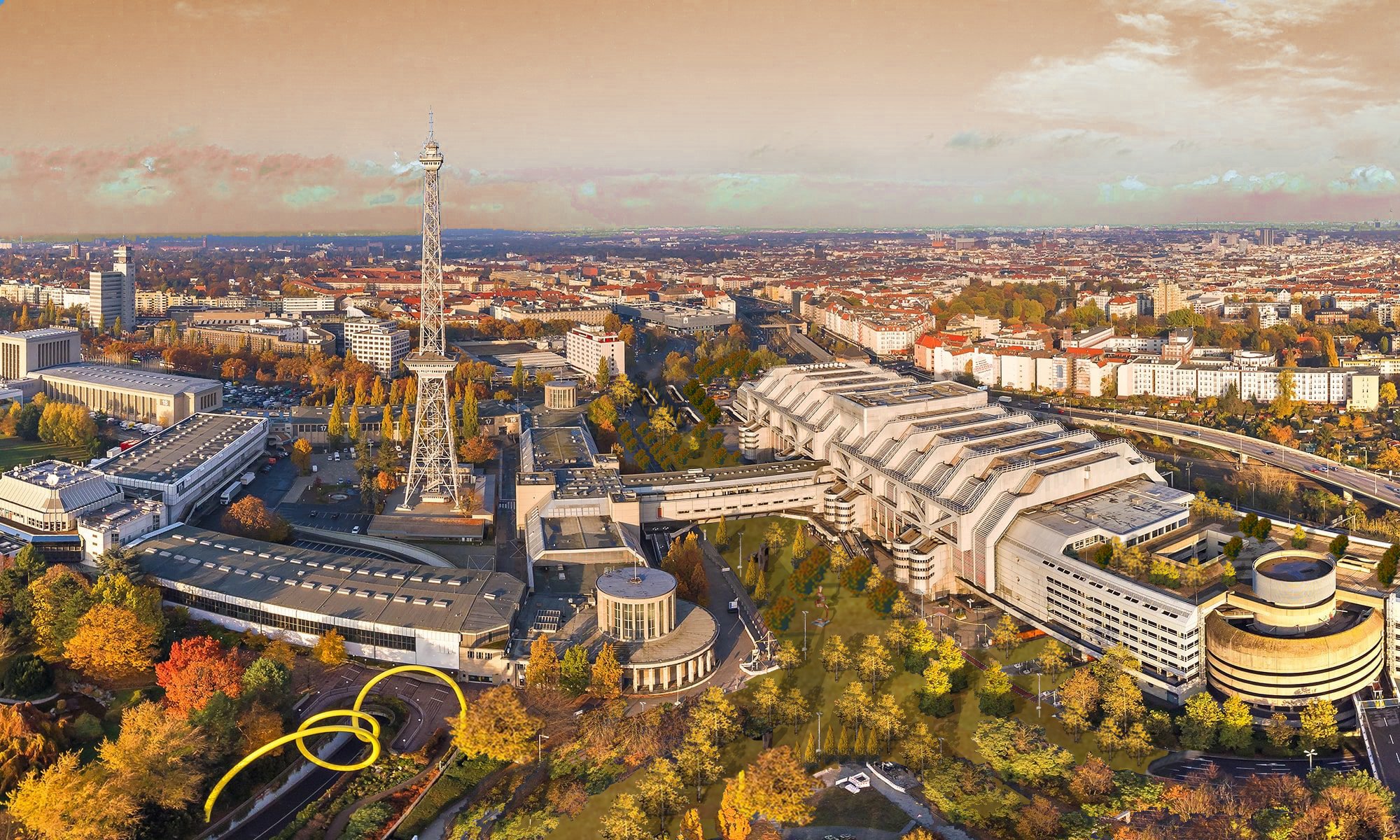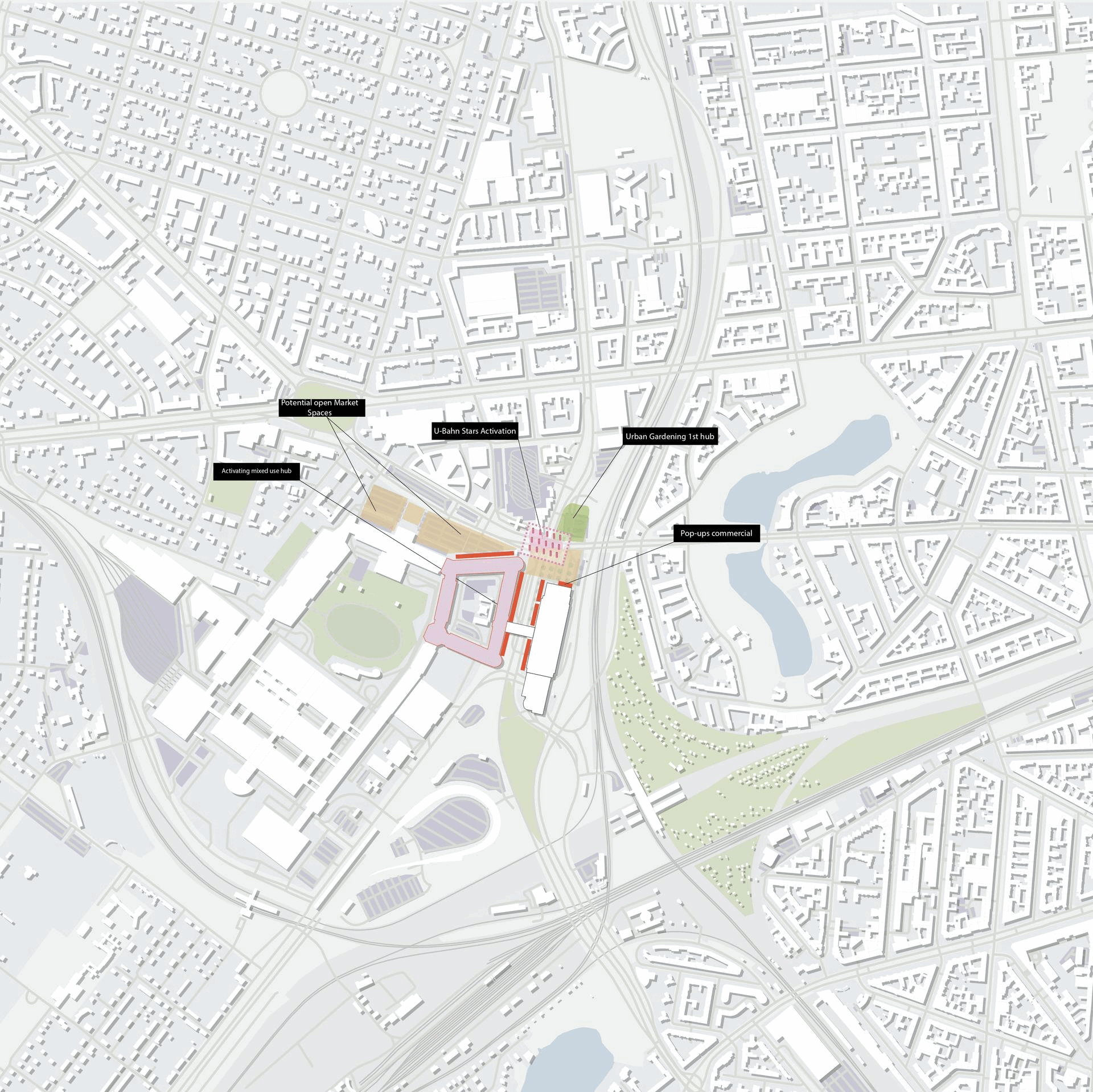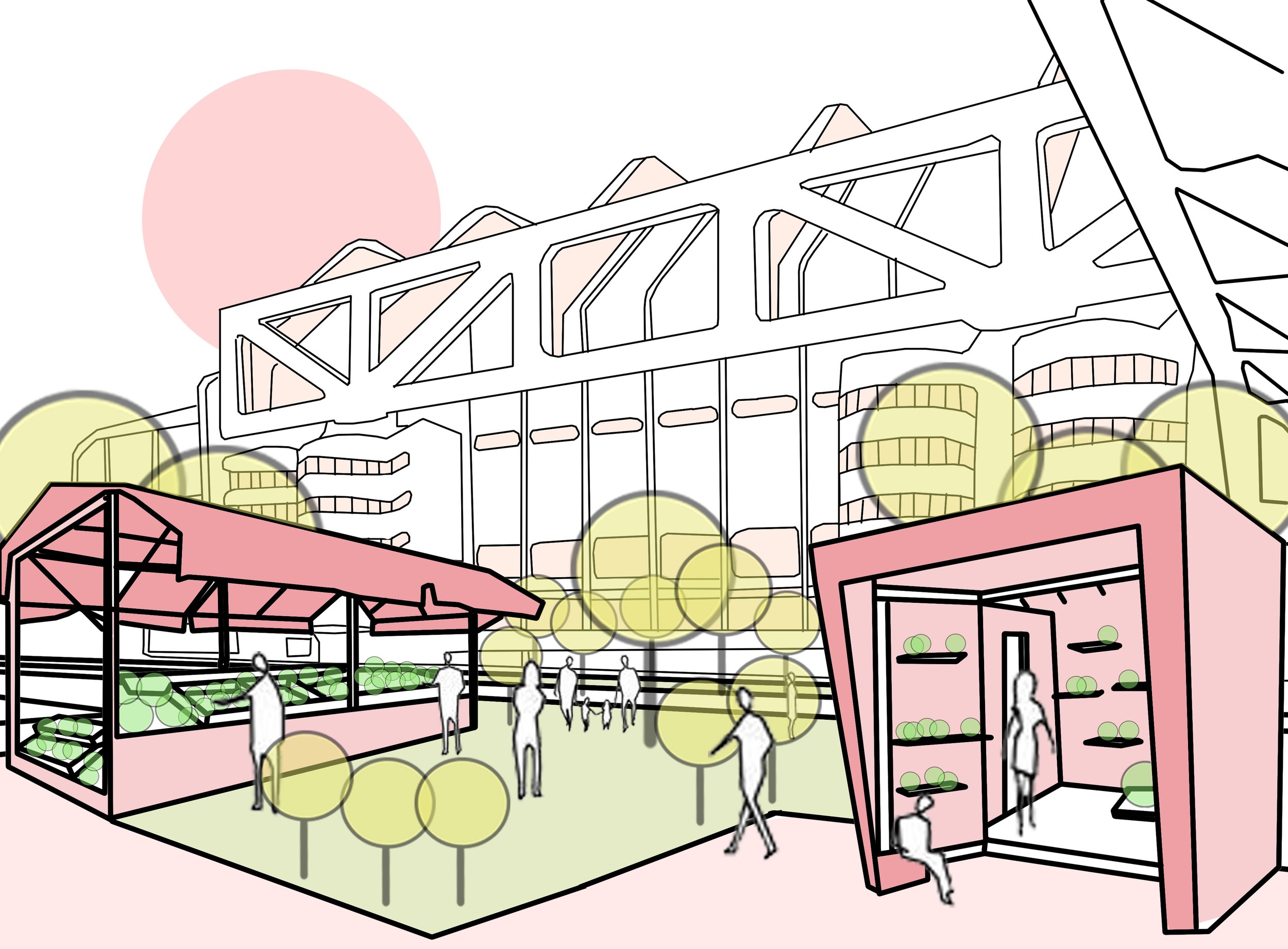
ICC Berlin - The Urban Patchwork.
The ICC Berlin, completed in 1979, stands as a monumental example of high-tech architecture, dominating Messedam in the heart of Berlin. Designed at a scale suited for automobiles rather than people, the International Congress Center (ICC) is surrounded by highways and a pedestrian-unfriendly streetscape. The "Urban Patchwork" concept challenges the dominance of cars in urban planning, proposing a new vision of micro-scale, productive communities.
By reimagining the ICC’s surroundings through thoughtful placemaking and a phased implementation strategy, the area can gradually be transformed, reclaiming the neglected metropolitan space for local use without altering the complexities of the ICC itself. This approach opens up the possibility for future changes to the ICC through long-term intervention.
A key part of this vision involves rerouting the highway underground, integrating it with the existing subterranean network. This would create a platform for socio-economic activity, with opportunities for regional development. Initiatives such as urban farming and local markets could thrive, fostering community engagement. In this way, the ICC can be carefully revitalized through a bottom-up approach, rather than relying on a top-down, technology-driven solution fueled by capitalist interests.
AAVS (Architecture Association Visiting School) Regenerating abandoned metropolitan megastructures workshop - 2021
Group members: Rayan Alfadel, Nouran Mansour and Tamara Faber.
Phases of Implementation
Urban Transformation
Vision
Urban Section










